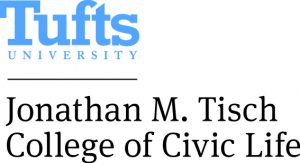This is a game that will play well for a large virtual group, and it is free. An in-person game is available elsewhere on this site. A useful list of other games, with reviews, is here.
This game simulates:
- A pandemic at a university. (How much does each student comply with social distancing?)
- Carbon policy. (How much does each country reduce its emissions?)
- Carbon policy with negotiations; and
- An iterated commons game involving fishing.
Instructions are provided in the first sheet. In brief, a facilitator or instructor should …
- Show players each sheet of the spreadsheet in turn.
- Read or briefly explain the scenario at the top. Do not answer questions about what the students’ objectives should be or what defines winning. Let them just play.
- Field a survey–using Zoom or another platform–with the choices that are presented in each scenario. E.g., The response options for the first scenario (the college pandemic) should be 0, 1, 2, 3, or 4.
- Enter the data from the survey in the grey cells of the sheet (e.g., cells B14-B18 in the college pandemic scenario). The other cells are all locked.
(In the second climate game, players should talk in breakout groups before they take the survey individually. In the fishing game, there are three rounds.)
- Discuss the results shown in the rest of each table once the data are entered.
Here are some questions for discussion:
- A game has parameters–for example, the number of players, the choices they can make, and whether players can talk. What other parameters can you think of that go into a game? How do you know whether the parameters are right for the situation?
- What assumptions do we make by using a game to model/represent/explain the real world?
- What kinds of situations–if any–can game theory help to explain? (You might think of other examples or general categories of situations that games seem useful for.)
- What kinds of questions can game theory probably not answer?
- When introducing his idea of the “Tragedy of the Commons,” Garrett Hardin (1968) talks about the “solemnity of the relentless working of things,” “the inevitableness of destiny,” and “the futility of escape.” Did we see evidence today that disaster is inevitable when people try to coordinate their behavior? If not, is there anything valuable in Hardin’s idea?
Related concepts
- Elinor OstromElinor Ostrom (1933-2012) was a political scientist at Indiana University and a leader of the intellectual movement informally known as the Bloomington School. She won the Nobel Prize in Economics in 2009 and was a MacArthur “genius” Fellow and president of the American Political Science Association. She directly influenced the development of Civic Studies. Contents … Continue reading
- Game theoryTo model a human interaction as a game means understanding it as a set of discrete choices made by independent parties that yield results for all (cf. Johnson 2020). A game model does not presume that the players choose privately or secretly. They may communicate and negotiate, but the game is ultimately decided by their … Continue reading
- Asset-Based Community DevelopmentAlthough civic actors should think critically and address problems, it is also valuable to be able to identify and appreciate the existing assets of any community, no matter how disadvantaged. Lesson 8 of Longo 2023 entitled “Asset-Based Community Development,” helps to develop skills for focusing on assets in communities.
- Public WorkHarry Boyte defines public work as “self-organized efforts by a mix of people who solve common problems and create things, material or symbolic, of lasting civic value” (Boyte 2011). Public Work disputes the standard definition of “civic engagement” as activities that people undertake voluntarily without being paid, such as voting, protest, or discussing issues. That … Continue reading
- Elinor OstromElinor Ostrom (1933-2012) was a political scientist at Indiana University and a leader of the intellectual movement informally known as the Bloomington School. She won the Nobel Prize in Economics in 2009 and was a MacArthur “genius” Fellow and president of the American Political Science Association. She directly influenced the development of Civic Studies. Contents … Continue reading
- Design principles for commonsElinor Ostrom and colleagues have found that communities are more likely to succeed at producing and protecting common pool resources if they employ the principles listed below (as phrased in Levine 2022, drawing on E. Ostrom 1990 and E. Ostrom 2010, 653) For the underlying theory, see this video lecture by Peter Levine on Ostrom’s … Continue reading
- The Institutional Analysis and Design (IAD) FrameworkContents Concept As stated on the Ostrom Workshop website: The Institutional Analysis and Development (IAD) framework was designed by Ostrom and her colleagues from the Ostrom Workshop in 2005 to facilitate analysis of institution processes through which individual and collective choices occur. The IAD framework includes analyzing actors, norms, institutional settings, incentive structures, rules, and … Continue reading

